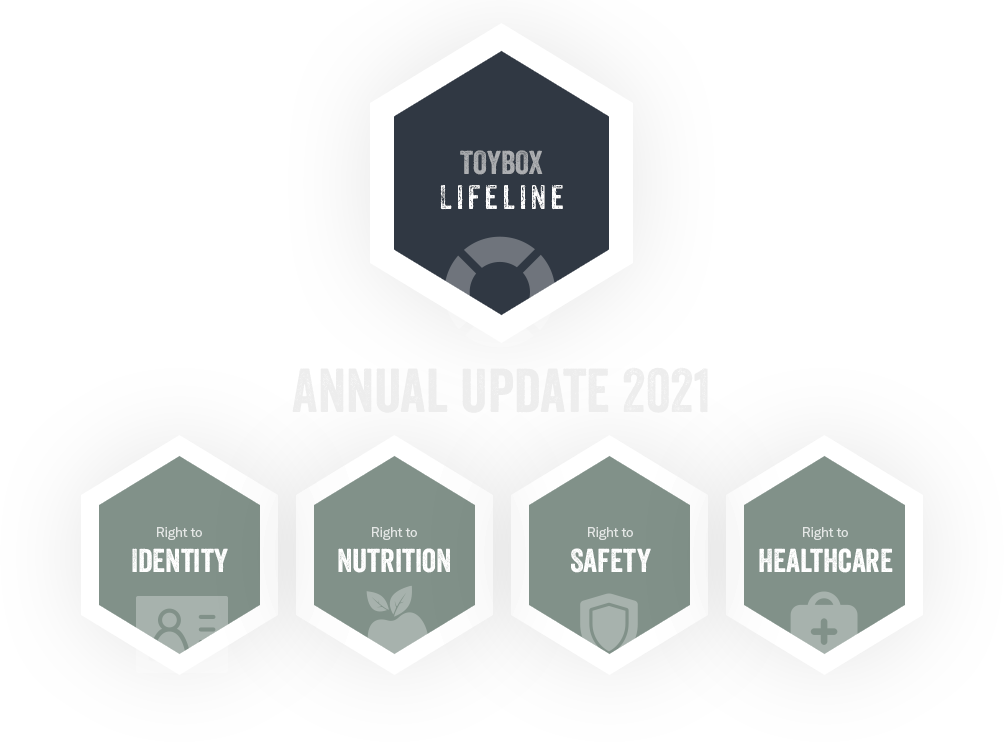
Toybox Lifeline Annual Update 2021
Right to
Right to
Right to
Right to

Right to
Right to
Right to
Right to
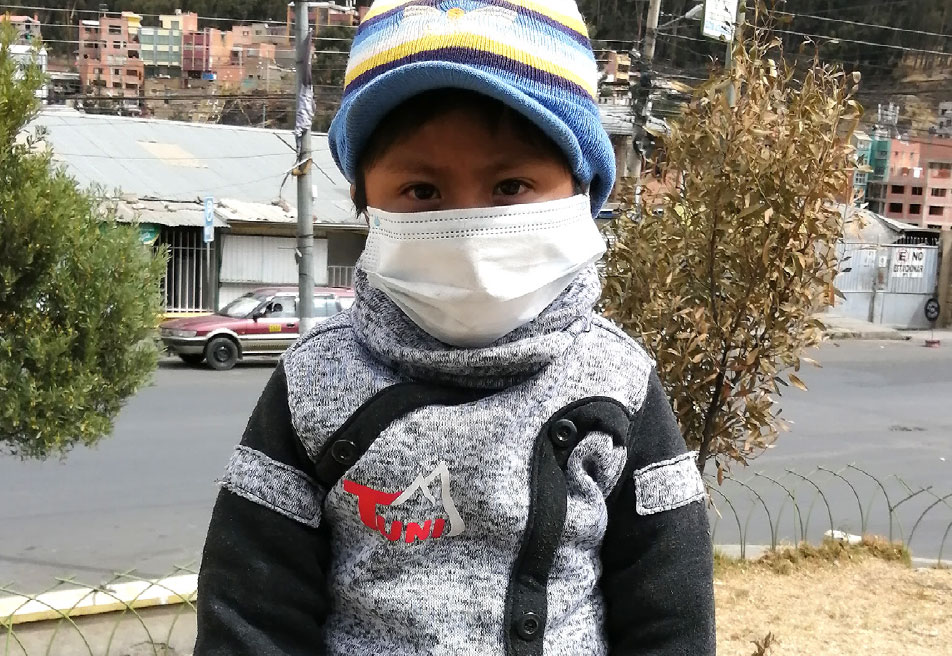
Kevin is five and lives on the outskirts of La Paz, in a remote area prone to landslides. His home, which was built by his parents and is shared by Kevin and his four older siblings, is very basic and has no sewage system or access to running water.
When our partner ALALAY first met Kevin, he was spending his days working alongside his older sisters making and selling handicrafts on the streets. He did not have his identity documents, so had been unable to enrol at Kindergarten.
Through our birth registration project in Bolivia, the team worked with Kevin’s family to support them through the official process of registering Kevin. Once Kevin had his birth certificate, he was able to start Kindergarten – which he was really excited about!
When the coronavirus pandemic hit Bolivia and the country went into a national lockdown, Kevin was unable to go to Kindergarten, however his new birth certificate continued to play an important part in protecting his rights during this period. With their official documentation and legal proof of identity, his family were able to receive emergency food vouchers from the government. Similarly, his birth certificate afforded peace of mind that should Kevin get sick and need to visit the hospital, he would be able to access the medical care he needed.
Kevin tells us that his day-to-day activities changed a lot when the country went into lockdown. Whilst he was able to take part in some school activities online using his sister’s mobile phone, internet access is limited and expensive in the remote area they live; and naturally the family prioritised the small amount of income they were able to earn selling items on the streets to buy food and healthcare supplies.
Last year, we provided Kevin and 577 other children and young people with the support they needed to obtain legal identity documents.
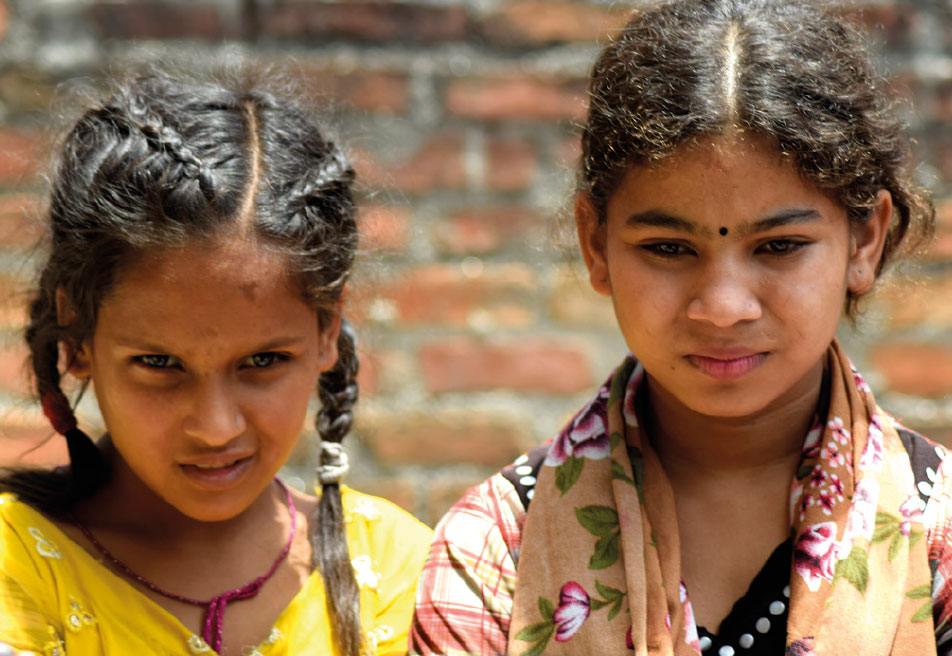
“I feel unhappy when my parents don’t have any money for food. If I could change one thing about my day at the moment it would be that we had enough food.” Chimini, July 2020
Prior to the pandemic, 15-year old Chimini, and her family were reliant on low paid and irregular work to earn a living. When both her parents lost their jobs, the family’s already limited source of income suddenly stopped altogether.
Like many street-connected families, Chimini and her family were already living a hand-to-mouth existence and had no savings to fall back on.
As the devastating and widespread impact of the pandemic was felt in Nepal, it was crucial that our partner Sath Sath acted swiftly to reach street children with emergency support. The team supported Chimini and many others from the Bridge project, focusing on meeting their immediate and most pressing needs for food and healthcare.
With your generous and ongoing support over the past year, SathSath tirelessly distributed emergency relief packages to ensure street children and their families had regular access to essentials, including meals, during this time of crisis. This support was vital as the country continues to be vulnerable to extreme poverty and approximately 36% of Nepali children under five are stunted due to acute malnutrition.
With your help during the past year, our partners around the world ensured that over 5,000 children and young people were able to access emergency food supplies during the pandemic.
As part of our coronavirus emergency response work in 2020, a combination of ration packs and vouchers supported 5,333 street-connected children, young people and their families to access food. The packs and vouchers provided a vital lifeline in particular for those who could not access government support during the pandemic as they were not registered.
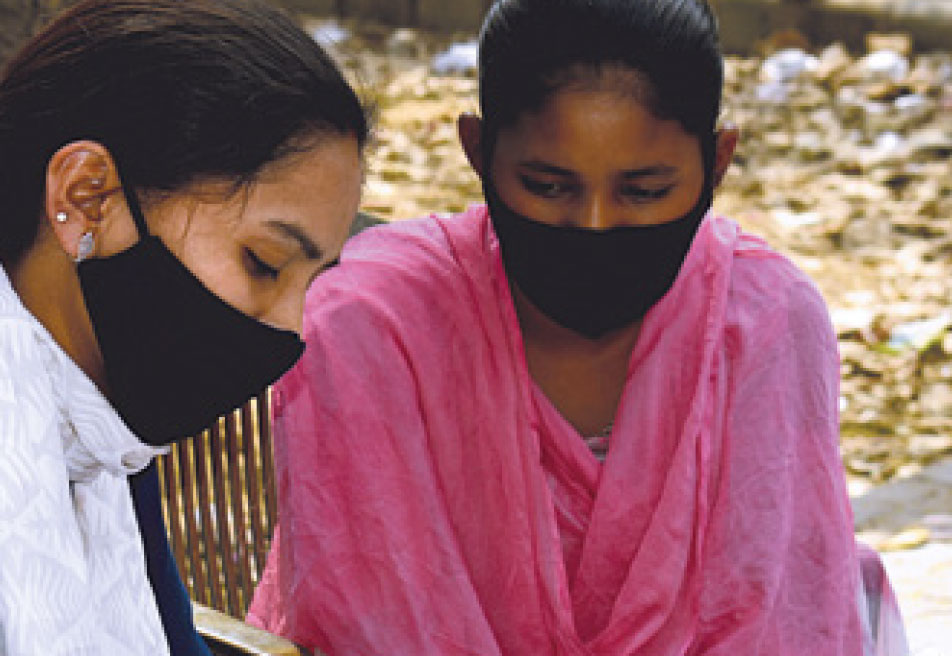
In India, discrimination against menstruating women and girls is widespread and periods have long been a taboo subject and considered impure. For the young women and girls we support, lack of access to sanitary supplies is more than just an inconvenience – it can be psychologically distressing and even dangerous to health.
Our partner, CHETNA, told us that many of the girls they work alongside in Delhi have had no choice but to use whatever they can get hold of to manage their periods and many rely on rags in place of sanitary products during menstruation – putting them at serious risk of infection.
Sadly, this health issue also has knock on effects to many other aspects of girls’ daily lives. CHETNA reported that a lack of access to adequate sanitary supplies is posing a significant barrier to girls’ full participation at the SURE project and affecting their ability to concentrate on their studies.
With your ongoing support, during the past year, CHETNA have been able to start addressing this serious healthcare concern by teaching the girls about managing their periods and also supplying them with sanitary kits. This support has been vital in ensuring that they are able to safely manage their periods – free of stigma or shame.
Throughout 2020 as the coronavirus pandemic hit and became a global health emergency, many street children and their families were unable to access basic healthcare supplies. Lockdown restrictions also prevented them from working or accessing basic services. With your regular support, across our projects in Latin America, Asia and Africa we were able to respond to the pandemic by:
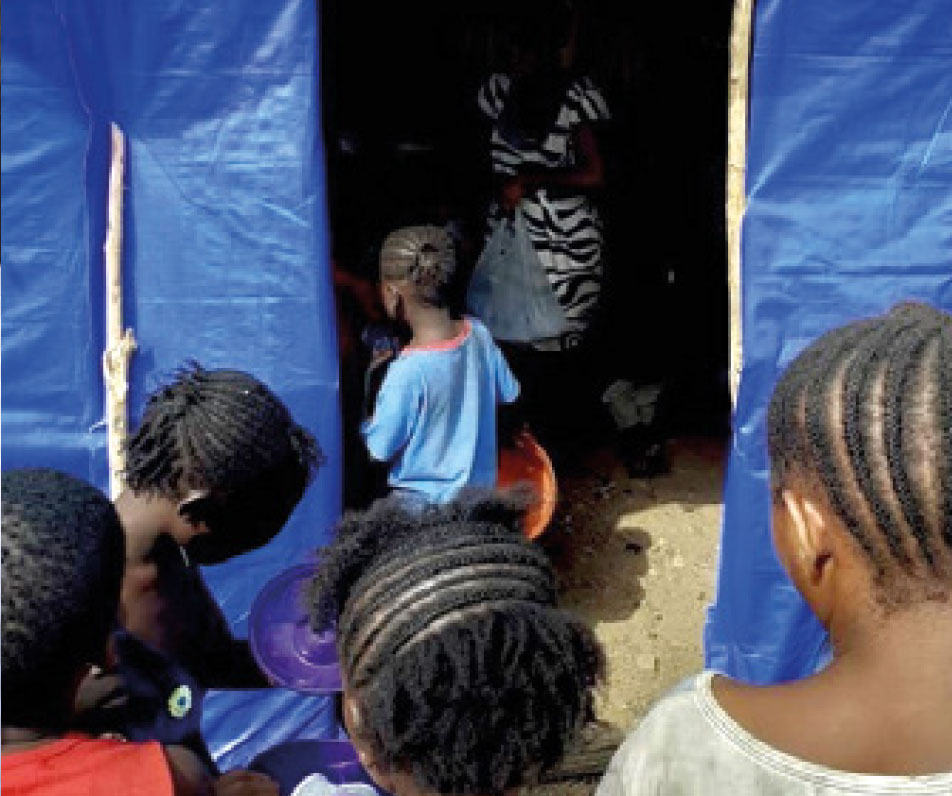
Earlier this year, a huge fire broke out at night in one of the slum communities in Freetown in Sierra Leone where 24 children from our education project live. The fire completely decimated the whole area, leaving nothing behind and forcing many to flee their homes with nothing but the clothes they were wearing at the time.
Thanks to your regular support, our partner, St George Foundation Sierra Leone, were able to work with other organisations on the ground to provide emergency support to the community affected by the fire including temporary shelter, educational items, clothing, medical support, counselling and food. They were also involved in creating a safe space which included toys and mattresses to enable young children to safely play and rest during the day. This place of safety has also been used for food distribution and counselling for children.
Sadly, at times of crises, it is also common for cases of abuse and exploitation to rise. To protect children and young people, our partner was also involved in setting up a Child Protection Desk for people to raise concerns about a child’s safety.
The rapid response to the fire and ongoing support delivered by our partner has provided a vital lifeline to a community facing the monumental task of having to rebuild their lives from scratch.
In times of emergency, street children are at even greater risk of harm. In the last year alone, we’ve made a significant and lasting impact, ensuring children’s right to safety. With your help we: